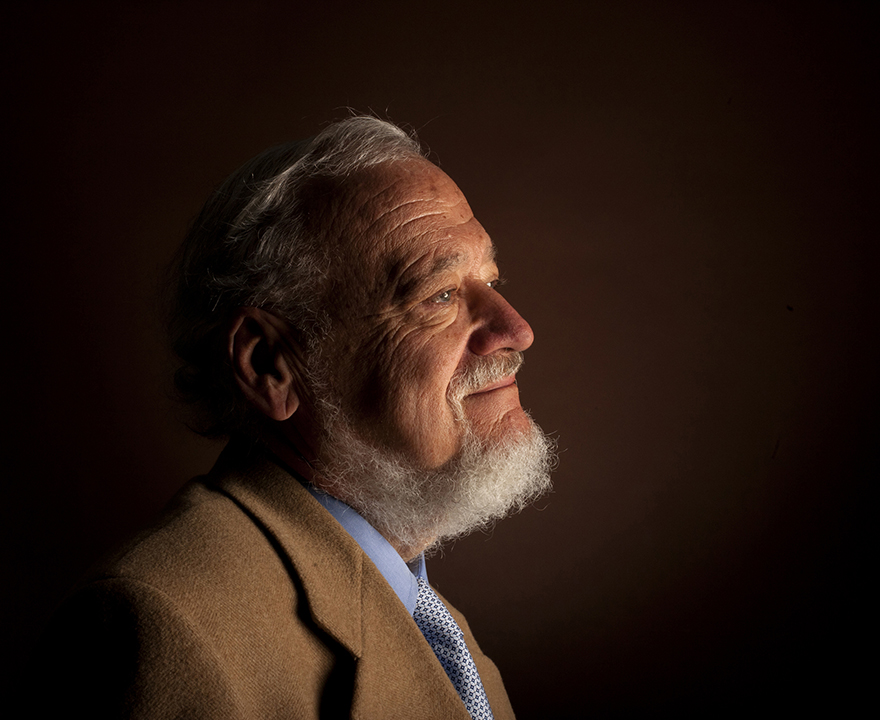Award-winning work

Award-winning work
- September 13, 2018
- Study by logic and philosophy of science professors Barrett and Skyrms among Philosopher’s Annual top-ten list of 2017
 Social scientists – particularly, theorists – use games to mathematically model social
interactions and subsequent decisions that humans make every day, from economic transitions
and the evolution of language to altruistic behavior. But where do the games themselves
come from? UCI logic and philosophy of science professors Jeffrey Barrett and Brian
Skyrms, tackled this issue in a study that appeared in The British Journal for the Philosophy of Science in June 2017.
Social scientists – particularly, theorists – use games to mathematically model social
interactions and subsequent decisions that humans make every day, from economic transitions
and the evolution of language to altruistic behavior. But where do the games themselves
come from? UCI logic and philosophy of science professors Jeffrey Barrett and Brian
Skyrms, tackled this issue in a study that appeared in The British Journal for the Philosophy of Science in June 2017.
Their work on how decisions assemble into games, how games may come to be appropriated to contexts that differ from those in which they are initially played, and, in particular, how simple games assemble into more complex games, earned them one of ten spots in the Philosopher’s Annual 2017, announced earlier this month. The publication, which has been in print since 1978, accepts nominations from philosophers around the world for the best published works in peer reviewed journals for the prior year.
 Barrett, a Chancellor’s Professor at UCI, is a philosopher of science who specializes
in the philosophy of physics; epistemology; game theory, decision theory, and rational
choice. His findings on these topics include more than 40 published studies in journals
including Philosophy of Science, Theory and Decision, and the Journal of Experimental and Theoretical Artificial Intelligence. He also has published two books on the conceptual foundations of quantum mechanics.
His work has been funded by the National Science Foundation, the University of California
President’s Fellowship, and other merit- and conference-based grants. Barrett earned
his Ph.D. with distinction in philosophy at Columbia University and joined the UCI
philosophy faculty in 1992. He’s a founding member of UCI’s LPS department which was
established in the School of Social Sciences in 1998. In just 20 short years, the
department has earned top 10 world rankings in all fields of study it supports. Barrett
served as department chair from 2009-14 and played an instrumental role in designing
and launching the interdisciplinary master’s in philosophy, politics and economics.
He’s also held a number of departmental, school and university service roles on executive
search committees, both undergraduate and graduate programs, and on academic planning
committees. For the past 10 years, he’s served as editor of Philosophy of Science, the official peer-reviewed journal of the Philosophy of Science Association.
Barrett, a Chancellor’s Professor at UCI, is a philosopher of science who specializes
in the philosophy of physics; epistemology; game theory, decision theory, and rational
choice. His findings on these topics include more than 40 published studies in journals
including Philosophy of Science, Theory and Decision, and the Journal of Experimental and Theoretical Artificial Intelligence. He also has published two books on the conceptual foundations of quantum mechanics.
His work has been funded by the National Science Foundation, the University of California
President’s Fellowship, and other merit- and conference-based grants. Barrett earned
his Ph.D. with distinction in philosophy at Columbia University and joined the UCI
philosophy faculty in 1992. He’s a founding member of UCI’s LPS department which was
established in the School of Social Sciences in 1998. In just 20 short years, the
department has earned top 10 world rankings in all fields of study it supports. Barrett
served as department chair from 2009-14 and played an instrumental role in designing
and launching the interdisciplinary master’s in philosophy, politics and economics.
He’s also held a number of departmental, school and university service roles on executive
search committees, both undergraduate and graduate programs, and on academic planning
committees. For the past 10 years, he’s served as editor of Philosophy of Science, the official peer-reviewed journal of the Philosophy of Science Association.
Skyrms, a Distinguished Professor in the department, has been a leader for many decades in the epistemological side of philosophy of science, and is a particularly central figure in debates about induction, Bayesianism, and subjective probability. His books in this area include Choice and Chance: An Introduction to Inductive Logic (four editions, 1966 to 2000), Pragmatics and Empiricism (1984), and The Dynamics of Rational Deliberation (1990), along with many classic articles. More recently Skyrms has done ground-breaking work on evolutionary models of social behavior, especially cooperative and communicative behaviors. His three books in this area, Evolution of the Social Contract (1996), The Stag Hunt and the Evolution of Social Structure (2004), and Signals (2010) are already regarded as classics, and have initiated a large and exciting literature following his lead. With models that are always as simple as they could possibly be, but no simpler, Skyrms has changed the direction of discussions of meaning and information, and explored rich and unexpected mappings between evolutionary theory and decision theory. Skyrms has written a total of six sole-authored books, co-authored one with Persi Diaconis, published two collections of papers, and edited or co-edited another seven books. He is a member of the National Academy of Sciences, a winner of the 1999 Lakatos Award, the 2017 Hempel Award for lifetime scholarly achievements, and was President of the PSA (2004-2006) and the Pacific Division of the American Philosophical Association (2000-2001). He has also played a key role in building UCI’s Department of Logic and Philosophy of Science and has advised numerous students who are now teaching in leading departments around the world and who continue the Skyrms tradition of rigorous and creative philosophy of science.
Share on:
Related News Items
- The multitrillion-dollar debate over "zero"
- UC Irvine's Department of Logic & Philosophy of Science earns top spots in latest faculty rankings
- The artful scientist
- UCI's Logic and Philosophy of Science Summer Diversity Program continues to champion underrepresented voices
- Quantum physics could finally explain consciousness, scientists say


connect with us: